Boost Your Masonry Bids – Request a Precision Estimate!
- Accurancy
- Efficiency
- Transparency
- Customization
- Time Saving
- Professionalism
- Cost Control
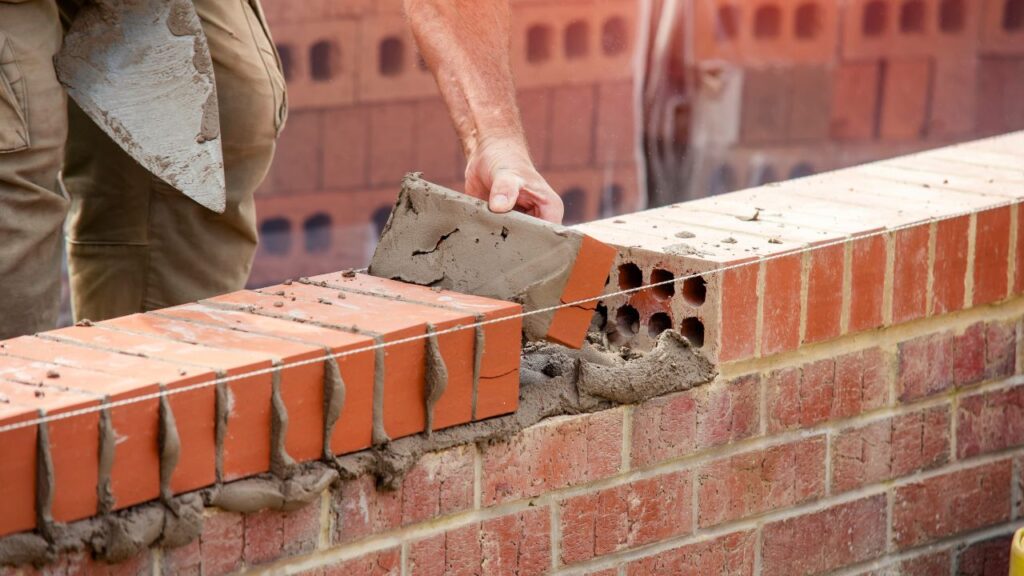
High-rise construction projects are feats of engineering and design, and among the myriad considerations, estimating the cost of masonry work is a critical aspect that significantly influences both the budget and the success of the project. Accurate masonry cost estimation is essential for effective financial planning, resource allocation, and overall project management. In this guide, we will delve into the key factors influencing high-rise building masonry costs and provide a step-by-step approach to creating a comprehensive masonry cost estimate.
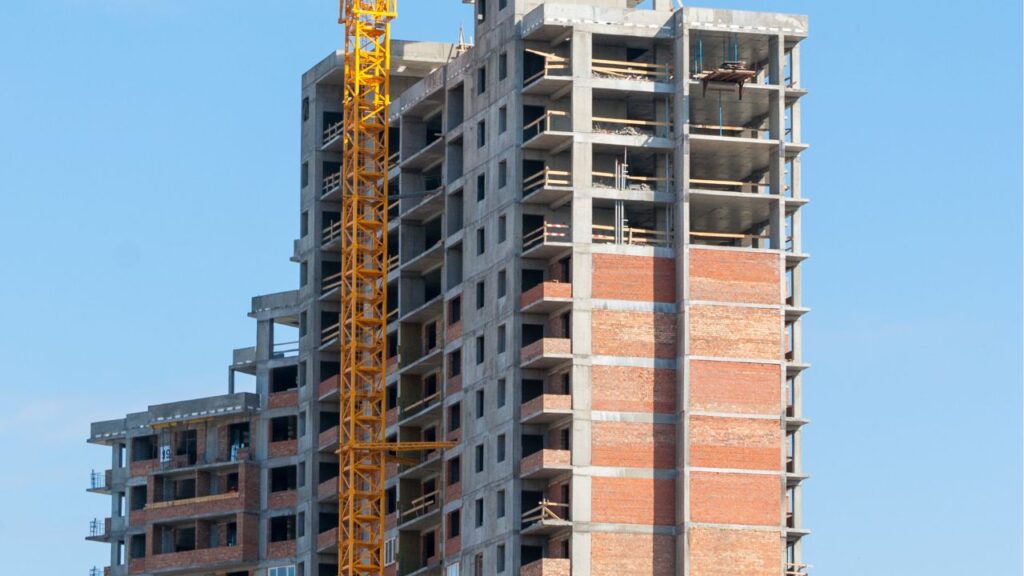
The careful selection of masonry materials is a pivotal decision that resonates throughout the entire high-rise construction process, exerting a profound influence on overall costs. Among the commonly employed materials are bricks, concrete blocks, natural stones, and architectural precast elements. Each material brings forth its own price range, reflecting factors such as availability, sourcing, and manufacturing intricacies. Beyond cost considerations, the durability of the chosen material becomes a crucial factor, influencing long-term maintenance expenses. Moreover, aesthetic considerations, encompassing the visual appeal and architectural cohesion of the material with the overall design scheme, contribute to the comprehensive evaluation. As such, the judicious choice of masonry material intertwines economic prudence, longevity, and a harmonious integration into the building’s aesthetic vision.
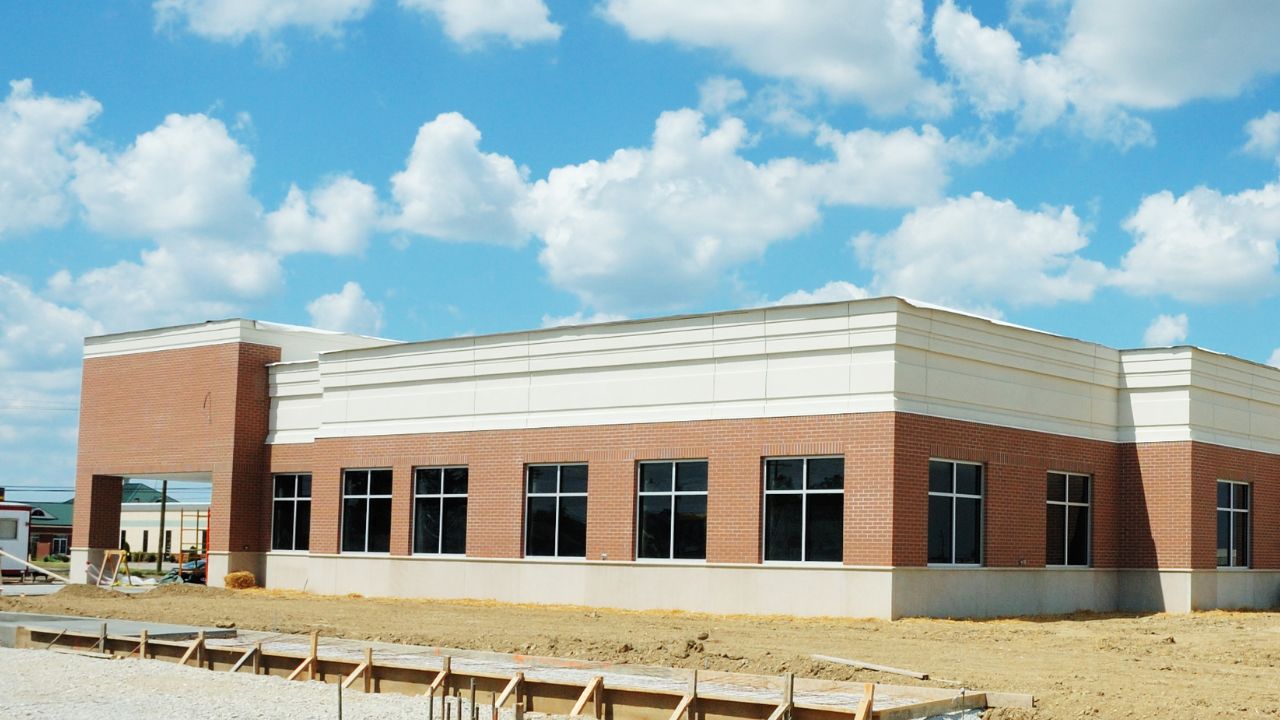
Fully Insured Licensed Hire Builder For Masonry Construction
Hire Builder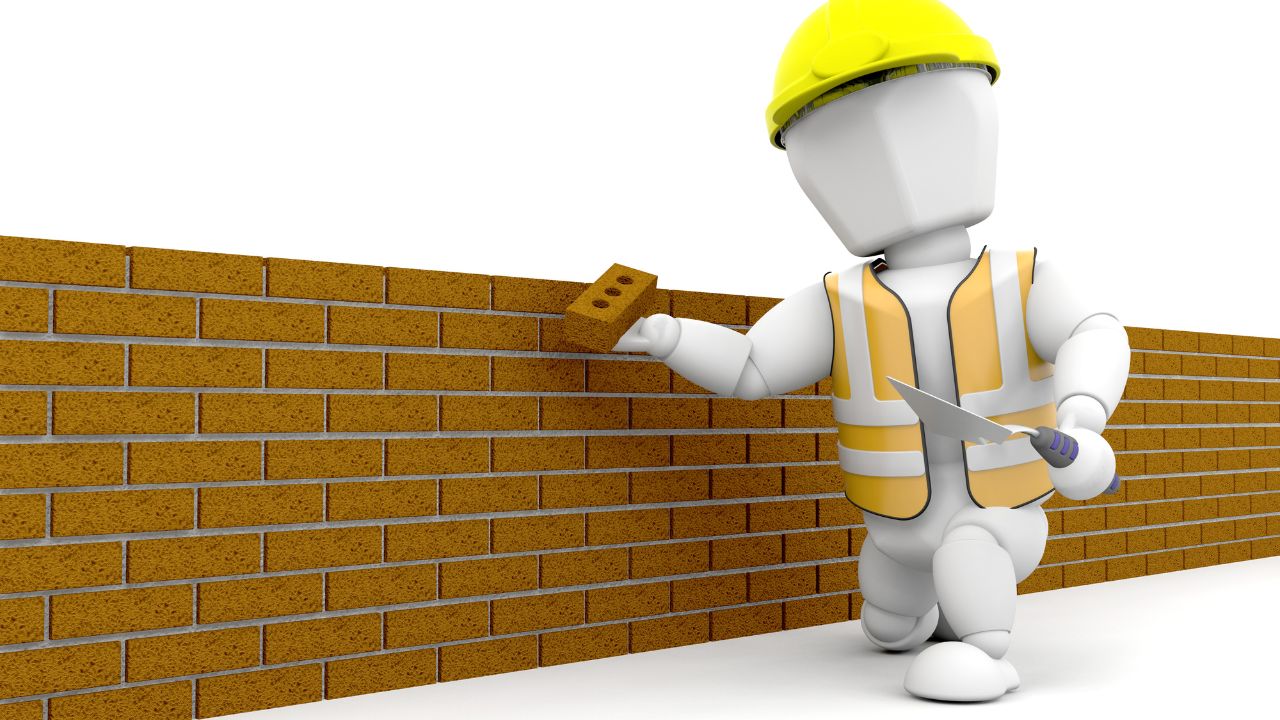
Make Informed Design Decisions Showcase Your Design Ideas
Get RenderingThe intricacy of masonry design within the context of high-rise buildings is not merely an artistic facet but a fundamental determinant of project costs. Elevated structures often boast complex façades, intricate patterns, and distinctive architectural elements, necessitating the expertise of skilled craftsmen. The realization of elaborate designs demands a substantial investment of time and specialized knowledge, invariably impacting labor costs. Highly detailed masonry work requires a meticulous approach, from precision in laying bricks to intricate ornamentation, contributing to the nuanced labor requirements. Therefore, design complexity becomes a cornerstone in the cost estimation process, reflecting not only the material intricacies but also the artistic and skilled craftsmanship integral to the realization of sophisticated masonry designs.
In the realm of high-rise construction, masonry isn’t merely a superficial embellishment but a structural component that must adhere to stringent requirements. The structural considerations imposed by the design and engineering of high-rise buildings significantly influence masonry costs. Load-bearing walls, reinforcements, and seismic considerations introduce layers of complexity that extend beyond the aesthetic realm. The integration of these structural elements demands specialized materials and skilled craftsmanship, invariably impacting both material and labor expenses. As such, the cost implications of masonry work extend beyond the visible façade, reflecting the critical role it plays in the structural integrity and safety of the entire high-rise construction project.
The geographical location of a construction site and its accessibility constitute practical considerations that reverberate in the realm of masonry costs. The transportation of masonry materials to the construction site incurs logistical expenses, with factors such as distance, terrain, and transportation infrastructure influencing overall costs. High-rise construction, often situated in urban environments, introduces additional challenges related to accessibility and space constraints.
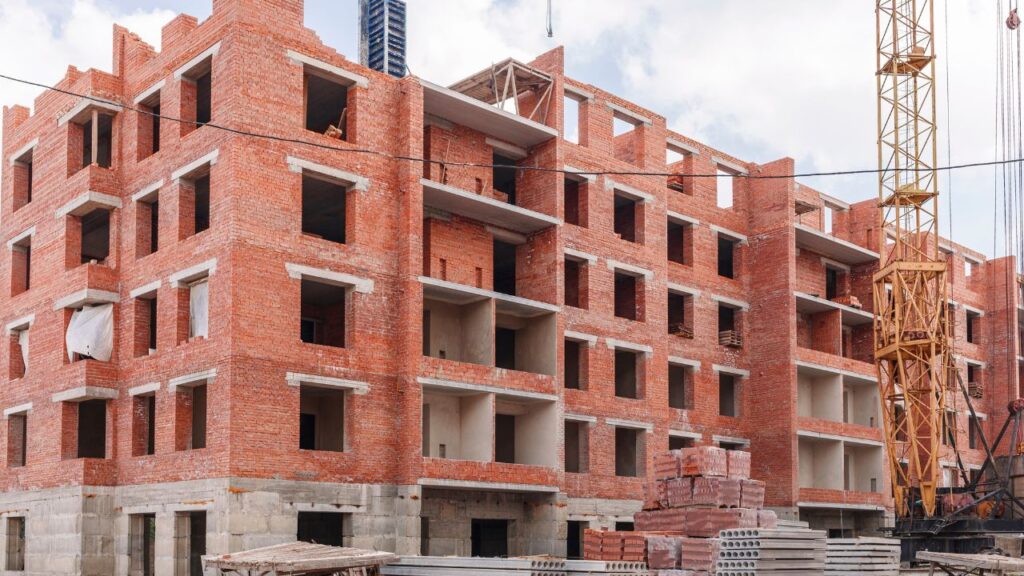
Working at considerable heights necessitates specialized equipment and safety measures, contributing to the intricacies of logistics and impacting labor efficiency. Therefore, a nuanced understanding of the construction site’s location and its accessibility is imperative in accurately estimating the comprehensive costs associated with masonry work in high-rise projects.
Skilled labor stands as an indispensable facet of high-rise masonry projects, where the intricacy of the work demands a workforce equipped with specialized knowledge and expertise. The complexity of masonry design, coupled with structural considerations, underscores the need for craftsmen capable of executing precise and intricate work. Labor costs, which vary based on the project’s location, the demand for skilled masons, and the intricacy of the work, constitute a substantial portion of overall masonry expenses. Investing in a skilled workforce ensures not only the quality and precision of the masonry work but also contributes significantly to the overall success and safety of the high-rise construction project.
Time becomes an invaluable currency in high-rise construction projects, and the allocation of time for masonry work holds profound implications for costs. Project timelines, whether dictated by stringent deadlines or scheduling constraints, introduce dynamic factors that can significantly impact expenses. Tight deadlines may necessitate the deployment of additional labor resources for expedited work, potentially increasing overall costs. Balancing the need for efficiency with the imperative of maintaining high-quality standards becomes a delicate dance in the cost management process. A well-organized and realistic project schedule aligned with the complexities of high-rise construction is vital for achieving a harmonious balance between time considerations and cost-effectiveness in masonry work.
Accurate masonry cost estimation holds paramount importance for various reasons, encompassing financial planning, project management, and overall construction success. Here’s a breakdown of the key aspects underscoring the significance of precise masonry cost estimation:

In the intricate dance of high-rise construction budgeting, precision is not a luxury but a necessity, and accurate cost estimation is the linchpin of this financial planning. Masonry costs, constituting a significant share of the overall construction expenses, demand meticulous estimation for efficient resource allocation. A realistic and comprehensive budget, anchored in precise cost estimates, becomes the roadmap for financial decision-making throughout the project lifecycle. Developers, investors, and project managers rely on these estimates to allocate resources effectively, mitigating the risk of overspending and ensuring that the financial viability of the project is sustained from inception to completion. In essence, budgeting precision, rooted in accurate masonry cost estimation, forms the bedrock upon which successful high-rise building projects stand.
Optimizing the allocation of resources is an art form in high-rise construction, and masonry cost estimation plays a pivotal role in this strategic endeavor. The efficient distribution of materials, skilled labor, and equipment is a multifaceted challenge that demands a cost-effective approach. Masonry, as a core component, necessitates a delicate balance to prevent shortages or excesses during construction. Accurate cost estimates guide the decision-making process, allowing stakeholders to fine-tune the allocation of resources based on the projected costs of masonry materials and the skilled labor required. This strategic resource optimization not only ensures the smooth progression of the construction process but also safeguards against inefficiencies that could potentially escalate costs. In the realm of high-rise building projects, where complexity is inherent, resource allocation optimization driven by precise masonry cost estimation is key to success.
Cost estimation in masonry work is not merely about predicting straightforward expenses; it extends to identifying and mitigating potential risks inherent in the construction process. High-rise building projects are susceptible to unforeseen events or changes in scope that can impact masonry work. A well-prepared masonry cost estimate incorporates a contingency fund, acting as a financial buffer to navigate through unexpected challenges. This proactive approach to risk management minimizes the impact of unforeseen issues, such as unforeseen structural complexities or changes in project specifications.
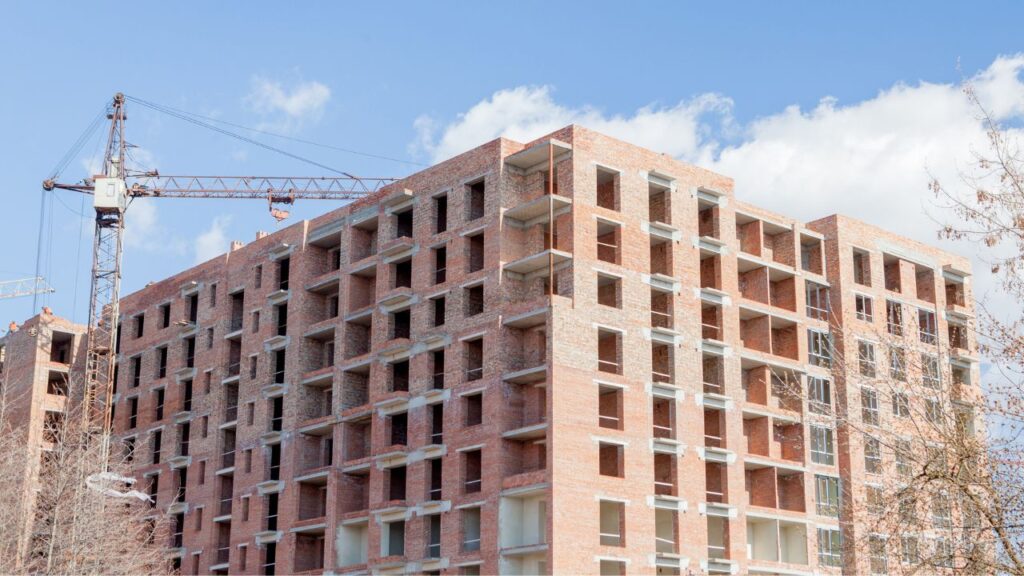
The contingency fund, informed by accurate cost estimation, stands as a shield against uncertainties, ensuring that the financial health of the project remains robust in the face of dynamic construction landscapes.
In the intricate ballet of construction scheduling, accurate masonry cost estimates take center stage. Understanding the expected costs of masonry materials and labor is akin to orchestrating a harmonious symphony of planning and coordination. Precise cost estimates allow for realistic project scheduling, reducing the likelihood of delays attributable to budgetary constraints. Time, a critical factor in high-rise construction, is intricately linked to costs, and accurate masonry cost estimates contribute to the efficiency of planning and execution. A well-organized project schedule, informed by precise cost estimates, ensures that masonry work aligns seamlessly with the overall construction timeline, promoting efficiency and timely project completion. Project scheduling accuracy, rooted in detailed masonry cost estimates, is the tempo that keeps the construction rhythm in harmony.
In the competitive arena of construction bidding and contracting, accurate masonry cost estimates wield significant influence. Contractors rely heavily on these estimates when preparing bids for high-rise construction projects. Realistic estimates not only enhance the contractor’s chances of securing the project but also provide a solid foundation for commitment to delivering quality masonry work within the proposed budget. The precision in estimating masonry costs plays a crucial role in shaping the terms of contracts, setting the stage for successful collaborations between contractors and clients. Transparent and accurate cost estimates instill confidence in clients, showcasing the contractor’s reliability and expertise in financial matters. Bid preparation and contracting, underpinned by accurate masonry cost estimates, form the cornerstone for forging successful partnerships and executing high-quality construction projects.
Collaboration with architects and project stakeholders lays the foundation for precisely defining the masonry scope in high-rise construction projects. Understanding the diverse types of masonry work involved is crucial, ranging from the creation of exterior façades to the construction of load-bearing walls and the incorporation of intricate decorative elements. This collaborative approach ensures that the masonry scope aligns seamlessly with the overarching project goals, taking into account both functional and aesthetic requirements. By engaging in thorough discussions during this phase, potential misunderstandings are minimized, and a comprehensive masonry plan emerges, serving as the guiding blueprint for the construction team.
Choosing the right masonry materials is a pivotal decision that heavily influences the success of high-rise construction projects. Collaborating with architects and considering design requirements, durability, and budget constraints are paramount in this selection process. Materials such as bricks, concrete blocks, and natural stones each bring their own set of characteristics to the table, from aesthetic appeal to structural integrity. Balancing these factors against the project’s budget ensures a judicious choice that aligns with both design aspirations and practical considerations. The selection of appropriate masonry materials sets the stage for a resilient and visually appealing high-rise structure.
The backbone of any robust masonry cost estimation lies in thorough research of the costs associated with chosen materials. Investigating prices per unit, whether per brick or block, is essential, and factoring in additional costs for mortar, reinforcements, or specialized elements provides a comprehensive understanding of material expenses. Transparency and well-informed decision-making in material cost estimation not only contribute to an accurate budget but also serve as a basis for clear communication with stakeholders. This phase involves a meticulous analysis of material prices, taking into account potential market fluctuations and ensuring that the estimated costs are both reliable and transparent.
The intricacy of the masonry design is a critical factor influencing labor costs and overall project expenses. In the realm of high-rise buildings, where complex façades, patterns, and architectural elements are common, evaluating design complexity is paramount. Elaborate designs may necessitate more time and the expertise of skilled labor, impacting the overall efficiency of the construction process. Additionally, consideration is given to the need for specialized craftsmanship to bring intricate details to life.
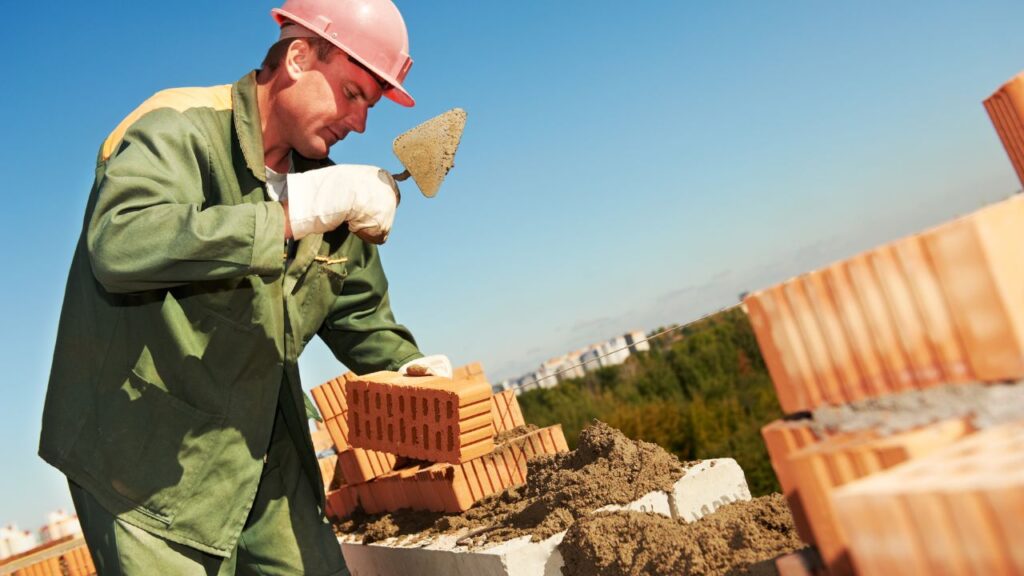
Assessing design complexity during cost estimation ensures that the project budget accurately reflects the artistic and architectural aspirations while accounting for the labor expertise required.
Structural considerations in high-rise buildings have a profound impact on masonry costs. Load-bearing walls, seismic reinforcements, and other structural elements add complexity to masonry work, influencing both material and labor expenses. This phase involves a meticulous examination of the structural requirements, ensuring that the chosen masonry materials and construction methods align with the specific needs of the high-rise structure. By factoring in these structural considerations during cost estimation, the project team can make informed decisions that contribute to the stability and longevity of the construction.
The expertise of skilled masons is indispensable in high-rise masonry projects, and obtaining labor quotes from experienced contractors is a crucial step in cost estimation. Factors such as the project’s location, design complexity, and the need for specialized skills contribute to varying labor costs. Ensuring that the chosen workforce can meet project deadlines and uphold quality standards is paramount. Collaborating with contractors, project managers, and skilled labor during this phase provides a realistic assessment of the workforce requirements for the masonry installation in a high-rise setting.
The location of the construction site and its accessibility are pivotal considerations that influence transportation costs for masonry materials. Additionally, the challenges associated with working at heights in high-rise construction present logistical complexities that may impact labor efficiency and costs. Factoring in these aspects during cost estimation ensures that the budget accurately reflects the geographic nuances of the construction site. This phase involves a comprehensive assessment of transportation logistics and the implementation of strategies to overcome accessibility challenges, contributing to a more accurate overall cost estimate.

Fully Insured Licensed Hire Builder For Masonry Construction
Hire Builder
Make Informed Design Decisions Showcase Your Design Ideas
Get RenderingThe timeframe allocated for masonry work in high-rise construction projects holds significant weight in cost estimation. Tight deadlines or scheduling constraints may necessitate additional labor resources for expedited work, potentially increasing overall expenses. Aligning the project schedule with the complexities of high-rise construction is crucial for effective cost management. This phase involves a meticulous examination of the project timeline, considering potential challenges and opportunities for optimization. A well-organized and realistic project schedule ensures that masonry installations align with the overall construction timeline, promoting efficiency and timely project completion.
To enhance financial flexibility and resilience in the face of uncertainties, it’s prudent to allocate a contingency budget during masonry cost estimation. Unforeseen challenges, design changes, or unexpected issues during the masonry process can impact costs. A contingency fund provides a financial buffer, allowing the project to adapt and succeed despite potential challenges. This phase involves a thoughtful consideration of potential risks and uncertainties, incorporating a contingency fund as a percentage of the total estimated cost to address unforeseen events effectively.
After compiling all cost components, including material, labor, and contingency, the finalization phase ensures alignment with the project’s overall budget and goals. Clear communication with project stakeholders is crucial during this step, providing them with a comprehensive understanding of the cost breakdown and fostering confidence in the accuracy and transparency of the masonry cost estimate. The finalized cost estimate serves as the guiding financial document for the entirety of the high-rise construction project, ensuring that financial resources are allocated efficiently, risks are mitigated, and the project progresses successfully from inception to completion.
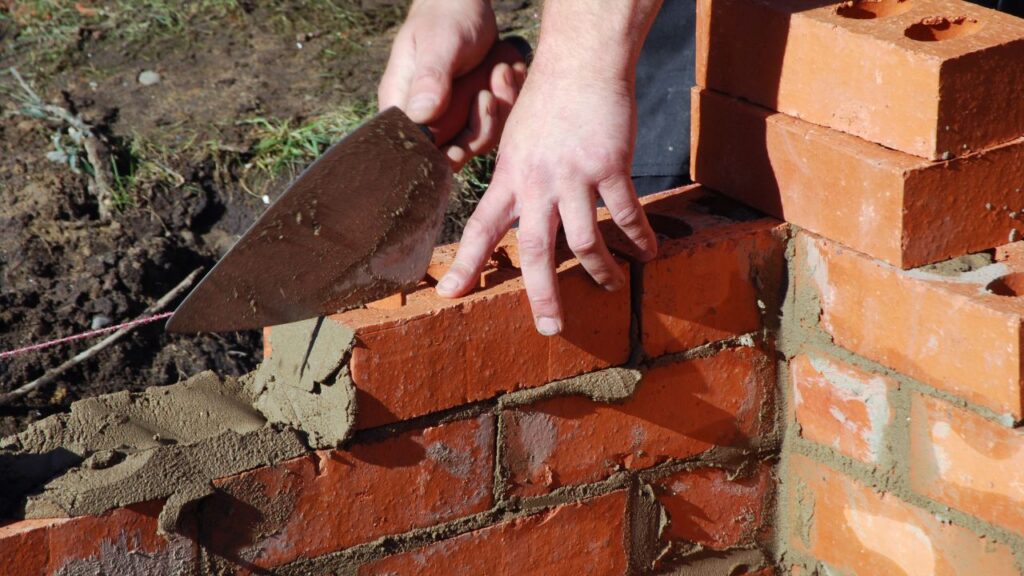
Engaging in negotiations with suppliers and leveraging bulk purchasing power can significantly impact the overall cost-effectiveness of high-rise masonry projects. Establishing favorable terms through negotiation, coupled with ordering materials in larger quantities, often leads to discounted prices. This strategic approach not only fosters strong partnerships with suppliers but also contributes to substantial cost savings. By maximizing economies of scale, construction teams can acquire the necessary masonry materials at more competitive rates, optimizing resource allocation and enhancing the financial efficiency of the project.
Implementing streamlined project management practices is crucial for optimizing labor efficiency and reducing installation time in high-rise masonry construction. The coordination among contractors, clear communication channels, and precise scheduling play pivotal roles in minimizing labor costs and potential delays. Efficient project management ensures that each phase of the masonry work is well-coordinated, leading to smoother workflows and timely completion. By enhancing project management practices, construction teams can not only control costs but also deliver high-quality masonry work within the defined timelines, contributing to overall project success.
Exploring the integration of advanced technologies, such as Building Information Modeling (BIM), can bring a transformative impact to the efficiency of masonry design and construction in high-rise projects. BIM allows for a comprehensive digital representation of the building, enabling precise planning and visualization of masonry components. This technology-driven approach streamlines processes, reduces the likelihood of errors, and enhances overall project efficiency. While the initial investment in technology integration may be notable, the long-term benefits in terms of cost savings, accuracy, and project optimization make it a strategic and forward-thinking consideration in high-rise masonry construction.
Incorporating sustainable practices, such as material recycling, can contribute to both environmental responsibility and cost savings in high-rise masonry projects. Exploring options for recycling or reusing masonry materials from previous projects or salvaged materials from the current site minimizes the need for entirely new resources. This not only reduces waste but also decreases the overall expenditure on materials. Sustainable initiatives align with modern construction practices, offering a dual advantage of cost-effectiveness and environmental stewardship. By adopting material recycling strategies, construction projects can demonstrate a commitment to responsible resource management while optimizing costs.

Engaging in collaborative design-value engineering (DVE) represents a creative and cooperative approach to optimizing masonry designs for cost efficiency without compromising structural integrity or aesthetic appeal. DVE involves a thorough evaluation of design elements, materials, and construction methods to identify opportunities for cost savings. By bringing together architects, engineers, and construction experts in a collaborative effort, high-rise masonry projects can benefit from innovative solutions that achieve the desired outcomes while remaining cost-effective. This approach ensures that every design choice adds value in terms of both functionality and financial efficiency, leading to a well-balanced and optimized construction project.
Accurate masonry cost estimation is indispensable for successful high-rise construction. Evaluating material choices, design intricacies, structural needs, and other factors ensures efficient budgeting and resource allocation. A step-by-step approach, including defining scope, selecting materials, estimating costs transparently, and considering design and structural aspects, guides the process.
Obtaining labor quotes, addressing location challenges, aligning with timelines, incorporating contingency, and finalizing estimates are crucial steps. Cost-saving strategies such as bulk purchasing, efficient project management, technology use, material recycling, and collaborative design-value engineering enhance financial efficiency and sustainability.
In essence, meticulous masonry cost estimation, coupled with strategic cost-saving measures, is essential for the success of high-rise construction projects, ensuring they are economically viable, structurally sound, and aesthetically pleasing.
Material selection, design complexity, structural considerations, location and accessibility, labor costs, and project timeline are key factors that significantly impact the overall cost of masonry in high-rise buildings.
Elaborate designs, intricate patterns, and unique architectural elements in high-rise buildings often require skilled craftsmanship and more time, influencing labor costs. Design complexity extends beyond aesthetics, impacting the overall efficiency and cost of masonry installations.
Accurate cost estimation is essential for budgeting precision, resource allocation optimization, risk management, project scheduling accuracy, and successful bid preparation and contracting. It serves as a foundational element for financial planning and decision-making throughout the project lifecycle.
Advanced technologies like Building Information Modeling (BIM) can enhance efficiency by providing a digital representation of the building, allowing for precise planning and visualization of masonry components. This technology-driven approach minimizes errors, streamlines processes, and contributes to overall project optimization.
Strategies such as bulk purchasing and negotiation, efficient project management, technology integration, material recycling, and collaborative design-value engineering (DVE) are recommended for optimizing costs in high-rise masonry construction. These approaches aim to enhance financial efficiency while ensuring sustainability and quality.
Here I am going to share some steps to get your high-rise building masonry cost estimate report.
You can send us your plan on info@estimatorflorida.com
Before starting your project, we send you a quote for your service. That quote will have detailed information about your project. Here you will get information about the size, difficulty, complexity and bid date when determining pricing.
Our team will takeoff and estimate your project. When we deliver you’ll receive a PDF and an Excel file of your estimate. We can also offer construction lead generation services for the jobs you’d like to pursue further.



561-530-2845
info@estimatorflorida.com
Address
5245 Wiles Rd Apt 3-102 St. Pete Beach, FL 33073 United States
561-530-2845
info@estimatorflorida.com
Address
5245 Wiles Rd Apt 3-102 St. Pete Beach, FL 33073 United States
All copyright © Reserved | Designed By V Marketing Media | Disclaimer